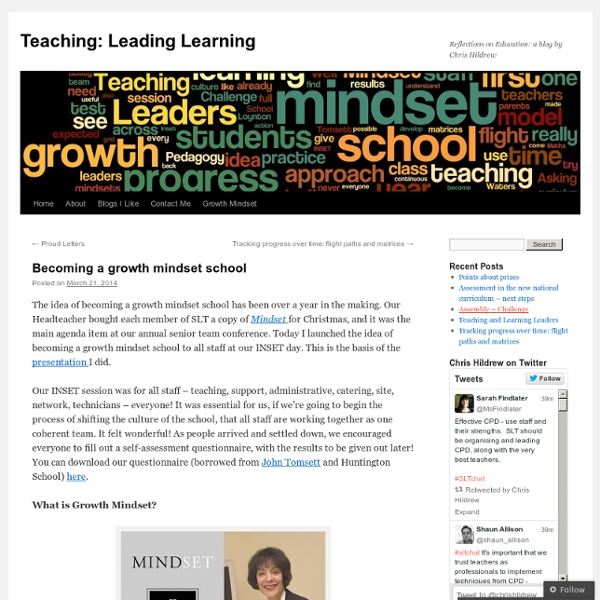Becoming a growth mindset school

Related:
Related:



